
For Pride Month in June, two LGBTQ+ Ugandans shared their stories and presence with Minority Africa. Uganda has an international reputation for harboring homophobic views, many of which have foreign origins.
In August 2014, the Anti-Homosexuality Act, first introduced by David Bahati in 2009, was annulled by Uganda’s Constitutional Court due to the technicality of not having enough lawmakers present to vote. The LGBTQ+ community’s presence in Uganda is proof that oppressed groups can persist, survive, be seen, and even flourish, despite being surrounded by a multitude of opposing forces.
These posts were first published across our social media platforms but have now been condensed into a photo essay.
Kampala, Uganda (Minority Africa) — I first met Raldy Okole when she greeted me outside of her house on the day of our interview. Her vibrant, warm personality makes you feel welcome, accepted, and light. She gave me a tour of the shared house she lives in. She spends a lot of time in the kitchen organizing or “tinkering” with food.
She likes the physicality of working with her hands. She draws and crafts assorted things. Her bedroom is beautifully decorated with the personal artifacts she’s collected over the years. The blue of Lake Victoria sits in view just beyond the window by her bed. She loves gardening because that was an activity she shared with her mother.
We ventured into the green surroundings outside the house. Sitting beside her on a tree swing facing Lake Victoria, I asked my questions and then listened.

Raldy Okole
Kampala, Uganda
I grew up in Jinja, Uganda. For the longest time, I thought I was the only [queer person].
I think when you feel fear and […] a negative attitude coming at you from other people, it’s so easy to cave into yourself and think I must be the only one who’s going through this because everyone seems to be sailing through. And it wasn’t true. One of my closest [queer] friends was just two neighborhoods away from me and I did not know that until we met like a few years ago.
It’s so hard to hide me, from the way I walk to the way I talk. My gestures, everything screams ‘homosexual’ from a mile away. I’ve never felt like I needed to hide myself.
I always figured out the queer things faster than I figured out other things in my life because for the longest time it was like, I’m queer. It was the thing that [became] my life. And outside of that who am I? Who am I outside of that?
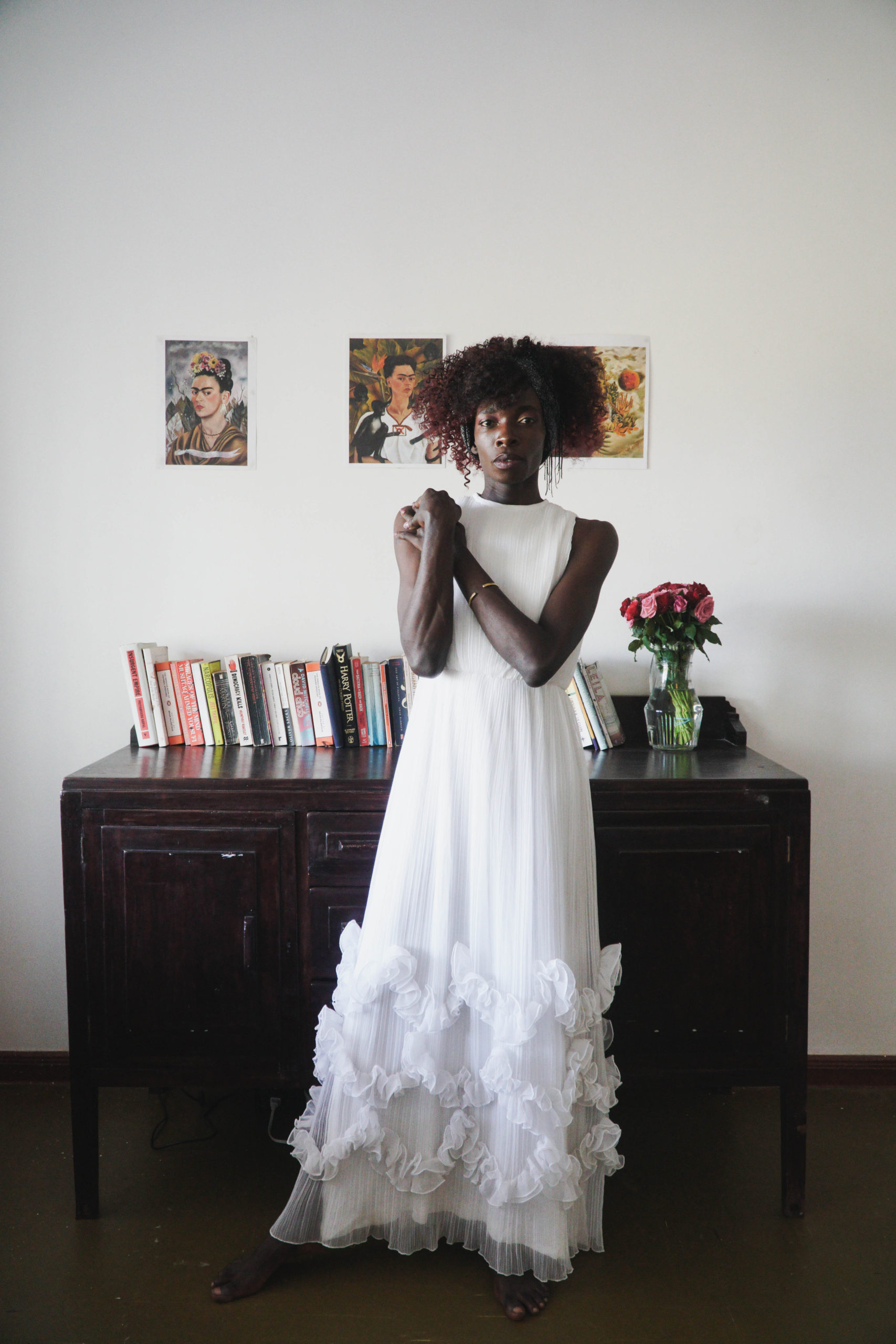
[I was] raised by a single mom [and] surrounded by her sisters. Big family, very close, very happy childhood. From the time I could walk, I was born and I jumped and just fell into my mum’s heels.
Every time she went to church on Sundays, I would dress her and say, ‘No that doesn’t go with those shoes, try these shoes. She was like, ‘Oh you’re very creative, you’re very good at makeup, very good with clothes, you’re well-spoken. These are all strengths to have.’
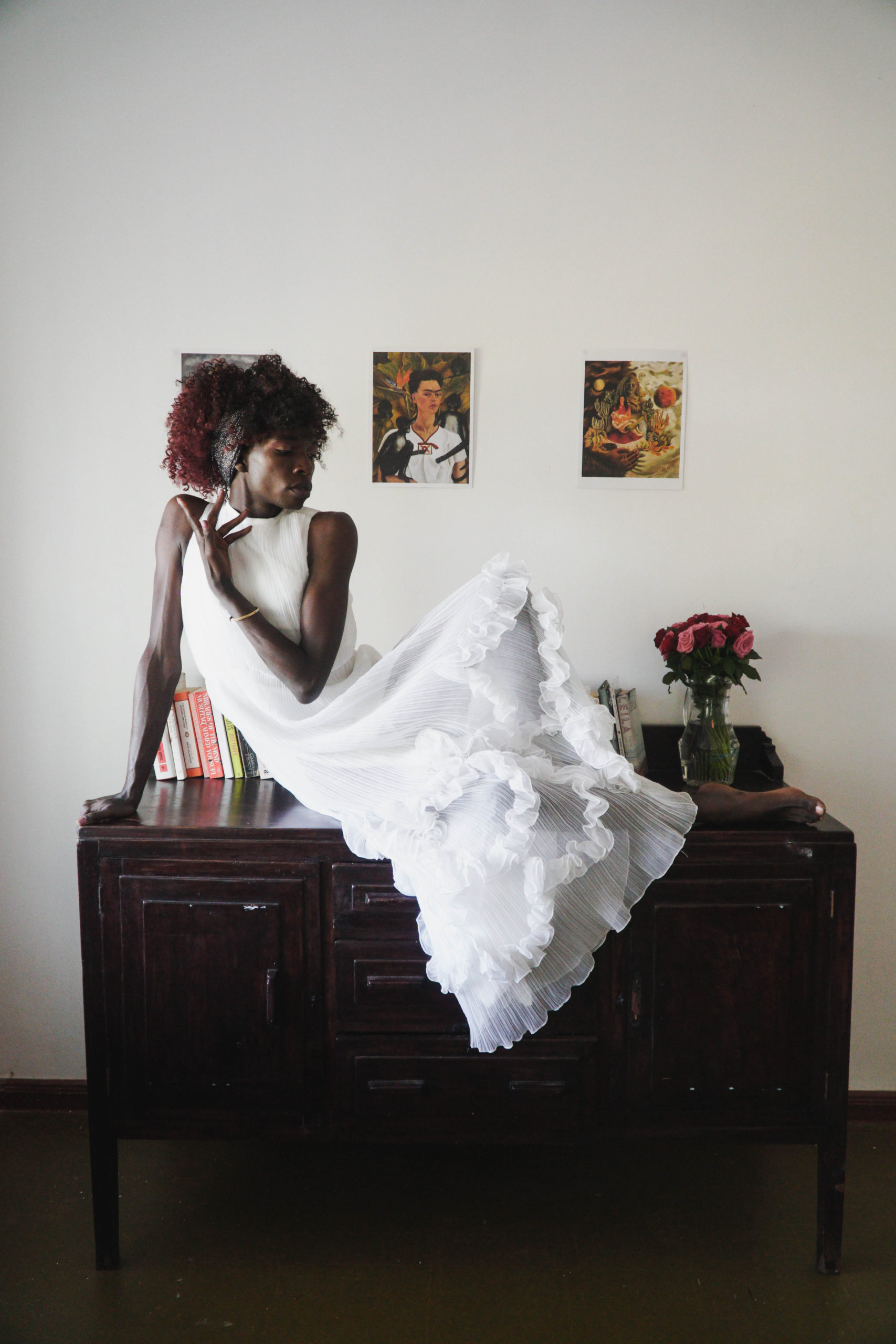
She played on my strengths, defended me, and shut down people when they tried anything.
My mum was my sun, my moon, my stars, my everything. And when [she passed], it spun me out of orbit.
Sometimes when the center of your universe has been ripped out, you have no center anymore. I didn’t have a center in myself.
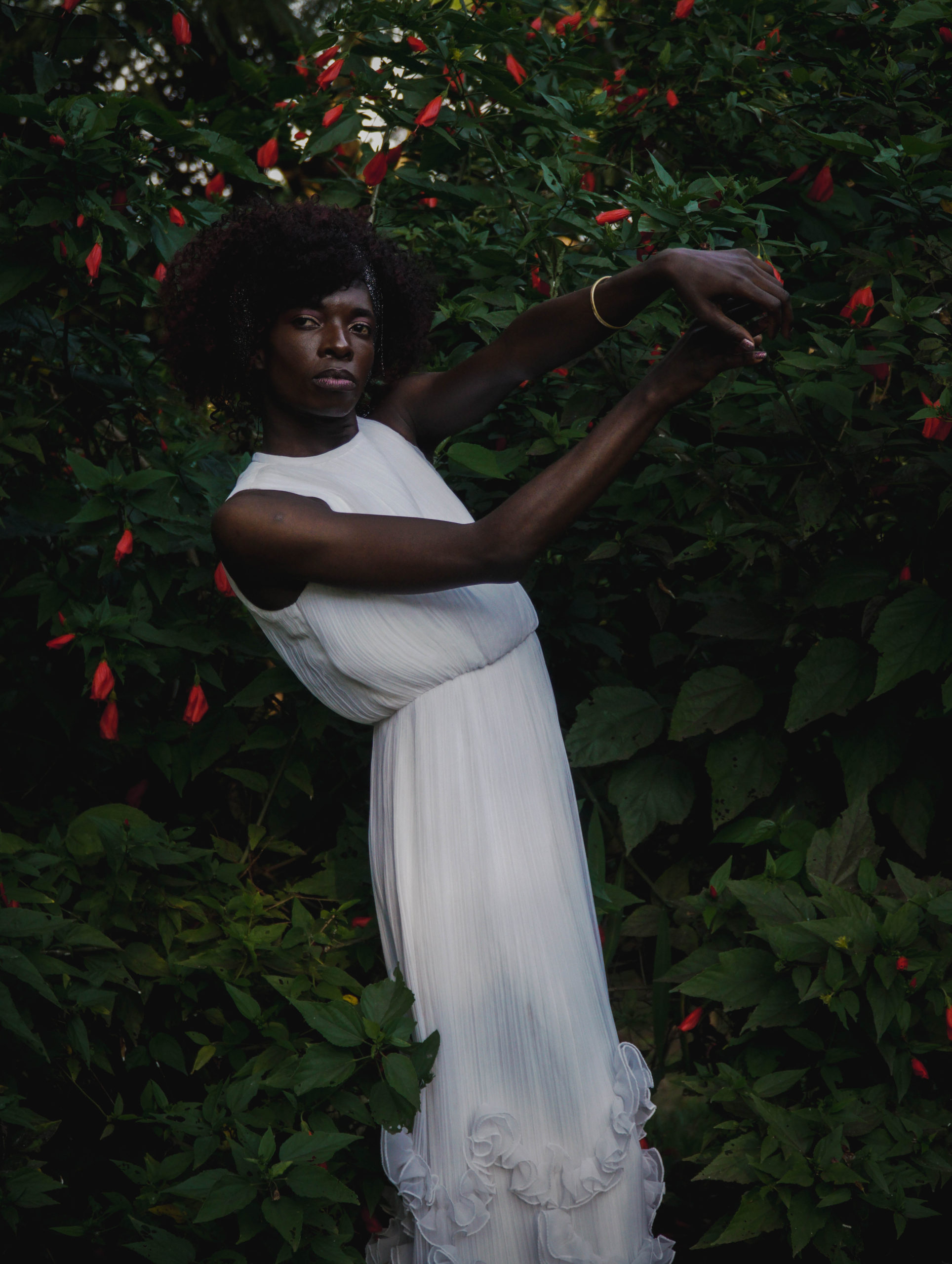
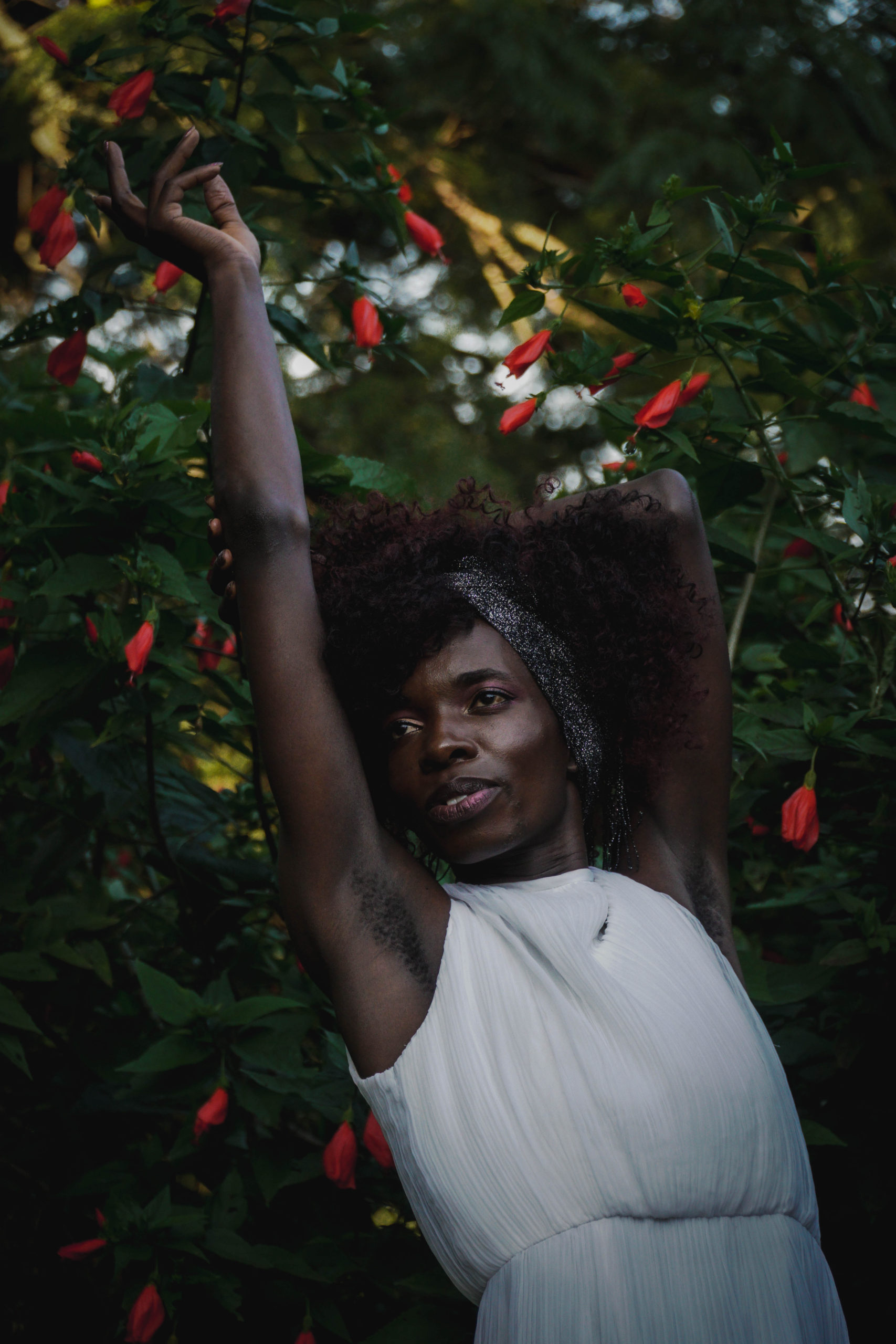
The police is not a friend to queer people in Uganda. It’s so easy to use queer people as a scapegoat for people’s anger towards the state.
It was around midnight […] We were at the back of the bar when we just saw a surge of people coming and I turned to [my friend], and I said, ‘Run.’
[The police] kept saying very derogatory homophobic transphobic things to us, and insulting us and kicking and slapping and caning.
We need to be strong within our own communities to take care of each other because the systems are not created to take care of us.
There’s only so much oppression you can keep doing. One day it snaps, which is what you’re seeing happening in the States. They are beginning to realize that they can’t hide us from their minds.
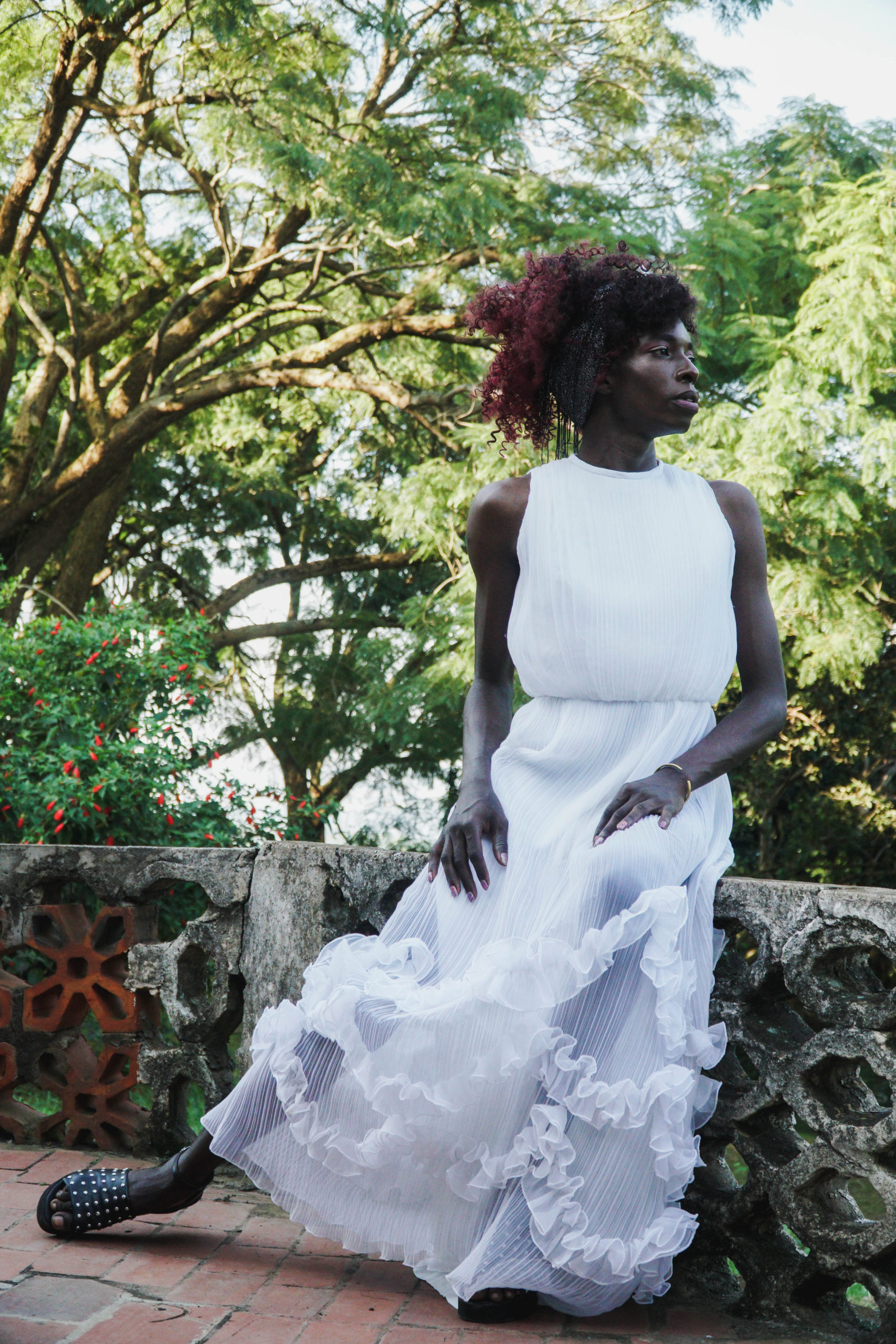
There is so much beauty queer people bring to this planet. The superpower that we have is that we do not play by the fucking rules.
We paint with every color that exists. We get to choose who our family is. We get to choose who we love. We get to be ourselves, and when we leave this planet, we rest knowing who we are outside of all of the bullshit that this planet has to throw. And that gives us such a freedom to look beyond the frame that we are supposed to live in. We see beyond that.
Governments are new institutions, we have been here since the dawn of time. We are important. We are beautiful. We are magical, and we must exist. That idea gives me confidence to walk out of my gate, to walk out of my door in the morning.
Florence Kyohangirwe is an embodiment of common sense and indignation in a chaotic, imposing world. She’s a fighter. I’ve gotten to know this through living with her. She is assured in her expression, whether it’s through what she has to say, how she chooses to dress, or how she takes photographs.
She has an uncanny intuition about human beings and how they move in the world, and empathy that reaches you. Although she learned from a young age that she didn’t have the talent to draw, she’s always been drawn to artistic expression and wanted to carve out her own niche in the art world by writing about creatives. She reads a lot.
Recently, she has joined our team at Minority Africa.
Sitting at the end of her bed, in her familiar room, she began painting the stories of which I’ve heard only snippets before.
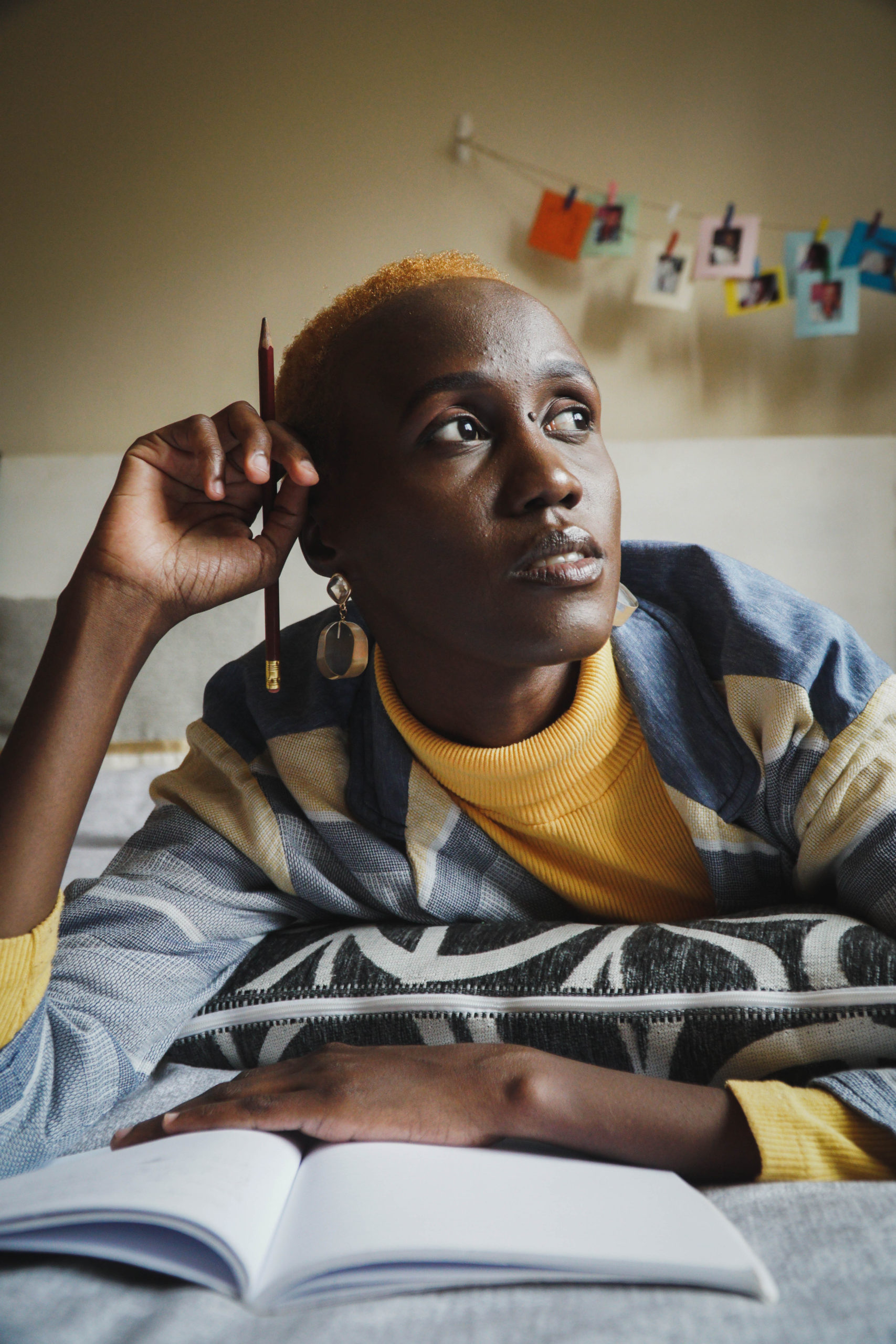
Florence Kyohangirwe
Kampala, Uganda
My first struggle as a kid was as a one-day-old baby fighting to stay alive. My mom had me and unfortunately, she over-bled and passed on that very day. My aunts and my cousin took me under their wings and the rest of my growing up happened in my cousin’s house.
My childhood is not really a sad story. [Without it], I wouldn’t have been a wannabe globetrotter at a young age but above all, I wouldn’t have a voice.
My aunt is my biggest inspiration. She is very opinionated and hates injustice and that is exactly who I am. Almost all the clothes I wore back then were gender-neutral. No one told me statements like, “Those are boys’ clothes” or ”Those are the appropriate clothes for women.”
She encouraged me to journal at a young age. I started expressing myself through writing. My rants, praise, and tears would all be in my journals. [Till date], writing is where I feel the most alive.
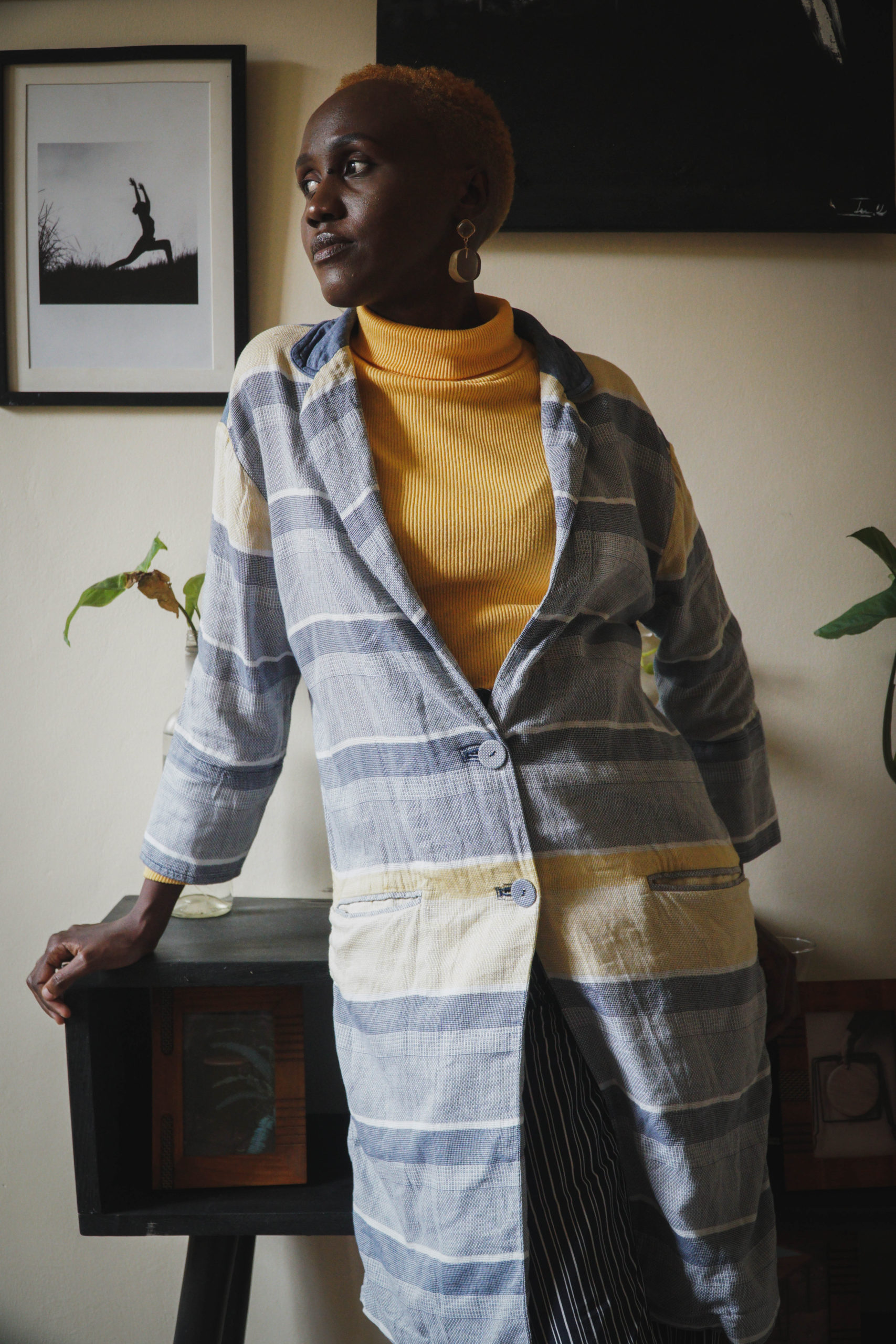
I cannot [live] uncomfortably for the comfort of oppressors, society, religion, or culture. I refuse.
Queer people should refuse oppression and also look out for each other. When one queer person is oppressed, we are all oppressed.
Straight people have actually mastered the art of oppression. They feel entitled to explanations from queer people about who they choose to love, about how they decide to dress, about roles in queer relationships […] all this, we do not owe them.
The straights I surround myself with know not to ask me anything they wouldn’t ask a straight person.
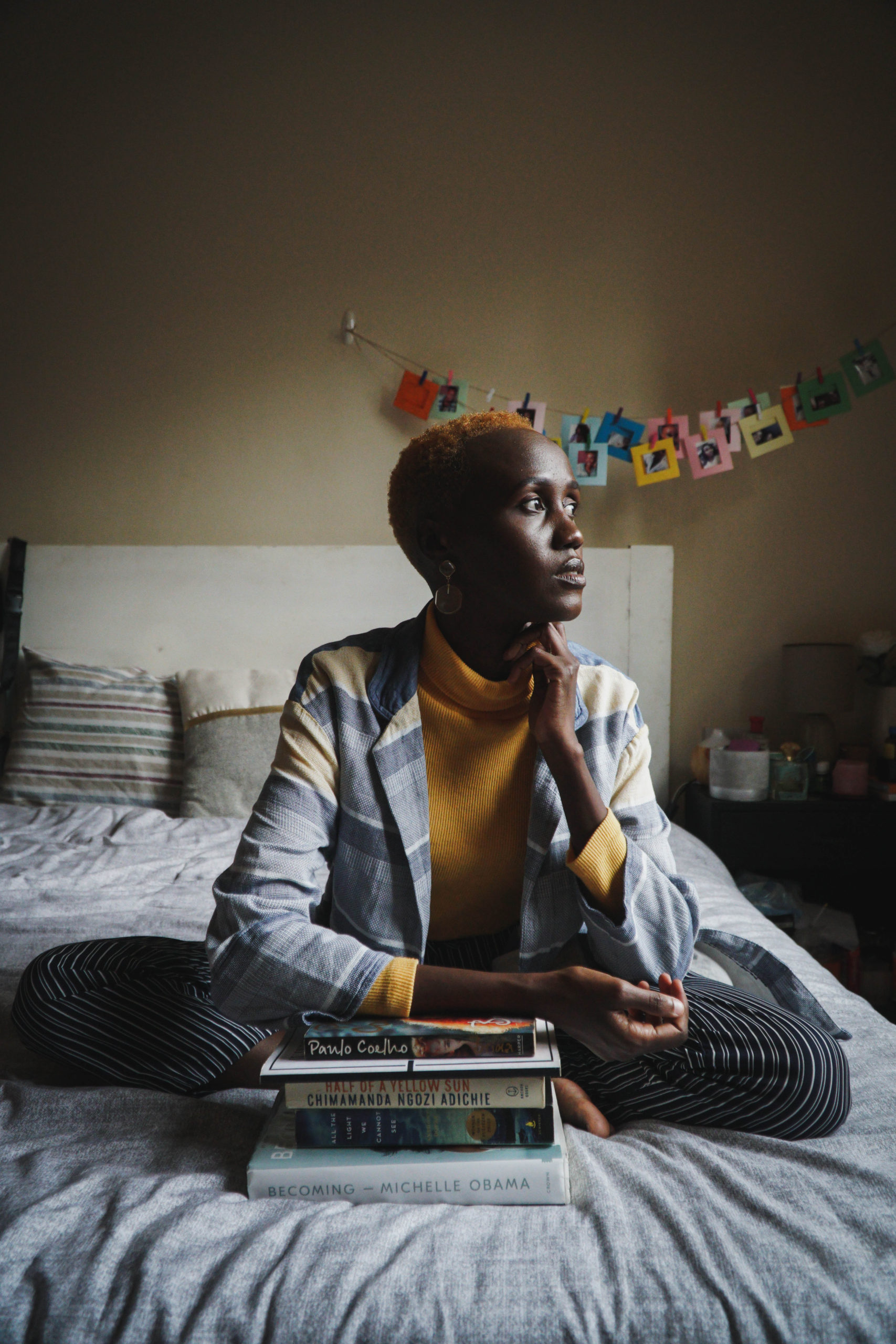
Being queer and able to express yourself how you want or feel is a privilege many don’t have, especially in Uganda. People fear judgment, backlash, and bullying. But when you decide that the world will get whatever you give her, that’s the most freeing choice.
Dressing and writing are a [way] to experiment and enjoy my queerness.
We have LGBTQ+ people represented and that takes courage. We have queer DJs, openly queer lawyers, events, doctors, TV personalities, and makeup moguls.
I’m proud of fellow journalists who are publishing stories about the LGBT community because other media channels censor LGBTQ+ content as if we don’t exist.
I am proud I can advocate for and write about the LGBTQ+ community without fear.
These interviews have been condensed and edited for clarity.
Megan S Lee is a videographer at Minority Africa. She hails from San Dimas, California but is currently based in Kampala, Uganda, where she has been using her skills to illuminate grassroots community development, environmental, and LGBTQ+ issues for non-profit organizations and individuals. She received her B.S. from the University of California, Berkeley in Conservation and Resource Studies. Megan draws her daily dosage of inspiration from music, documentary films, greenery, food, and her mother. She occasionally writes on Medium and Wikipedia. She is driven to fight climate injustice, elevate minority voices, and record memories. Contact: megan.lee@minorityafrica.org






